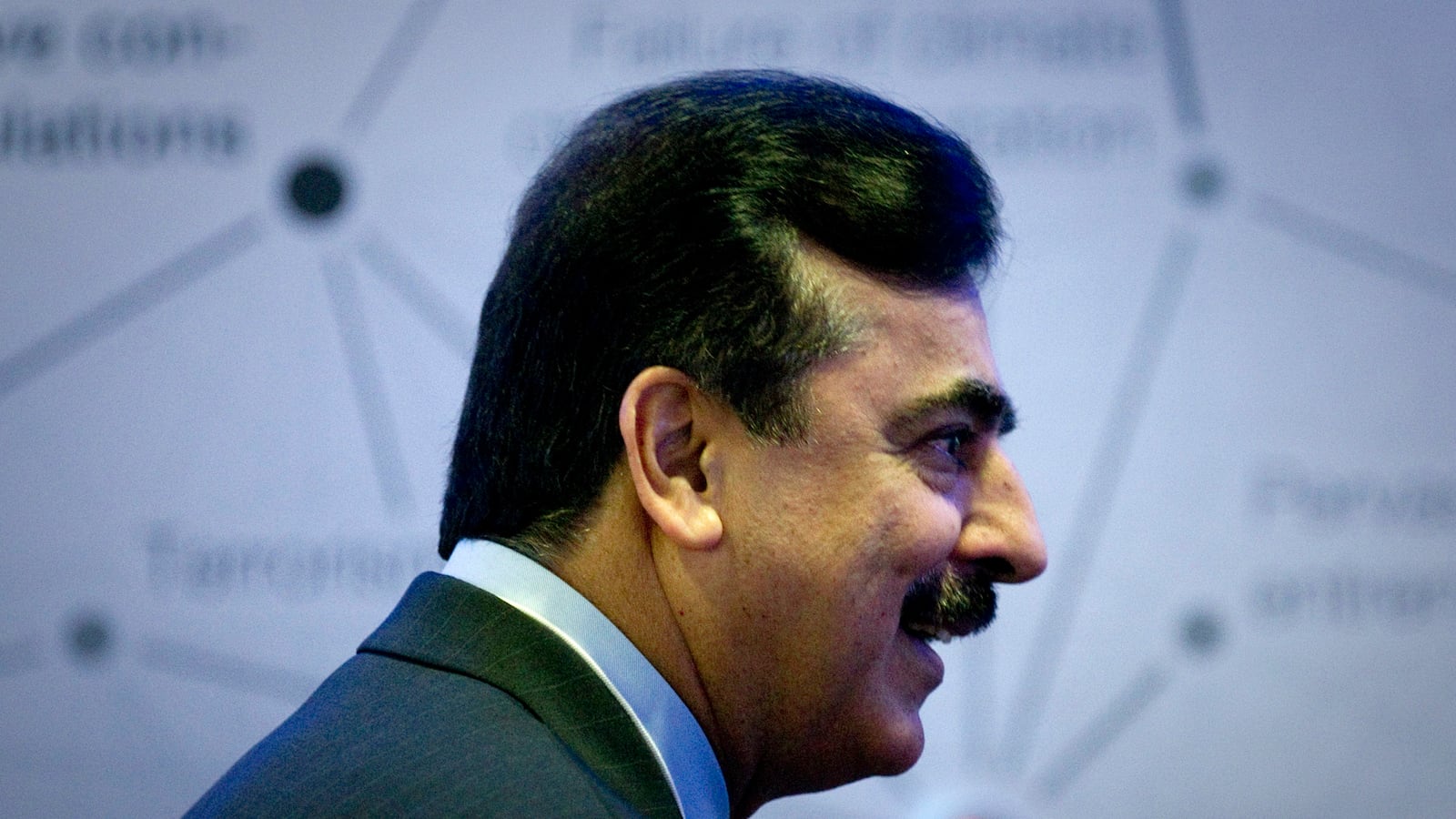Pakistan’s Supreme Court sacked the country’s prime minister on Tuesday, stoking what is likely the worst political crisis to have hit the besieged civilian government since it was elected four years ago.
Yousaf Raza Gilani “has become disqualified from being a member of [Parliament] … on and from … April 26, 2012, with all consequences,” reads the brief judgment issued on Tuesday following four hearings. “He has also ceased to be the Prime Minister of Pakistan with effect from the said date and the office of the Prime Minister shall be deemed to be vacant accordingly.” The court has directed the Election Commission to formally notify Gilani of his disqualification from Parliament and asked President Asif Ali Zardari to “take necessary steps under the Constitution to ensure continuation of the democratic process through parliamentary system of government in the country.”
The court had convicted, and sentenced, Gilani on April 26 on a contempt charge for allegedly refusing to write to Swiss authorities to reopen old corruption cases against Zardari. In May, the court issued its detailed 77-page judgment, which deployed poetry to encourage an Arab Spring-style movement against the Gilani-led government. It is “the responsibility of the people themselves to stand up for defending the Constitution and … for dealing with the delinquent [Gilani] appropriately,” Justice Asif Khosa had stated in his assent note.
Today’s court ruling ousting Gilani was expected given Chief Justice Iftikhar Chaudhry’s recent remarks. In the preceding days, Chaudhry had publicly expressed his displeasure over a “convict” in a “jail uniform” running his country’s government.

The ruling party had fought to keep Gilani in office. In her note to the court and the Election Commission, the speaker of the National Assembly had argued that Gilani’s conviction and token sentence did not disqualify him from Parliament under law. Opposition parties Pakistan Muslim League (Nawaz) and Pakistan Tehreek-e-Insaf (PTI) quickly filed petitions challenging the speaker’s opinion. Today, the three-member bench led by Chaudhry ruled in their favor.
The federal cabinet also stands automatically dissolved.
Hailing the court’s decision, former Prime Minister Nawaz Sharif’s daughter, Maryam Nawaz Sharif, whose party filed one of the petitions, tweeted: “RULE OF LAW PREVAILS … PAKISTAN WINS!!” Her party’s supporters responded to Gilani’s ouster by taking to the streets—dancing, singing, and firing celebratory gunshots in the air. “We welcome the SC’s decision on Gilani’s disqualification in clear terms,” tweeted PTI chief Imran Khan, “PTI will stand by SC and its decisions.”
The ruling party has accepted the court ruling and called for calm. In recent days, Pakistan has seen deadly riots and protests against power outages and inflation.
At the time of the ruling, Zardari and Gilani’s Pakistan Peoples Party was in a high-level session war gaming possible scenarios. The party and its coalition partners are expected to name a replacement tonight. The new candidate will have to seek a vote from the National Assembly before he can assume control. On paper at least, the ruling coalition has the numbers to get a new prime minister elected.
“Democracy has been undermined,” independent analyst Hasan-Askari Rizvi tells The Daily Beast. “Pakistan is in a highly polarized state at the moment,” he says, adding that the judiciary is claiming a high moral ground, as the military has previously done, to oust the elected government. “Whenever you try to rectify a state institution’s shortcomings through nonpolitical means, you’re violating democracy.” Rizvi says the starkly political dimensions of the court’s judgment cannot be ignored. “This is not a purely constitutional and legal issue,” he says. “One of the dimensions that will be considered is whether this is meant to serve as a distraction from the chief justice’s own family problems.”
Gilani’s sacking comes at a time when the Supreme Court itself is facing its worst crisis. Last week the court was forced into taking notice of allegations by real estate baron Malik Riaz Hussain—who is close to the government—that he paid some $4 million to the chief justice’s son Arsalan Iftikhar Chaudhry to thwart unfavorable Supreme Court verdicts. The judge’s son denies the charges. The chief justice swore on the Quran in court that he knew nothing of his son’s recently acquired riches. On Friday, the Supreme Court declared Hussain’s allegations and media interviews a “conspiracy” against the judiciary and imposed a gag order on him.
Some legal experts do not see Gilani’s dismissal as endangering civilian rule in Pakistan.
“This is not damaging to democracy,” says lawyer Salman Akram Raja who won a landmark judgment against the government three years ago. “The government will announce a new candidate, vote him into power and the government shall continue. It’ll all return to normal soon enough.”






